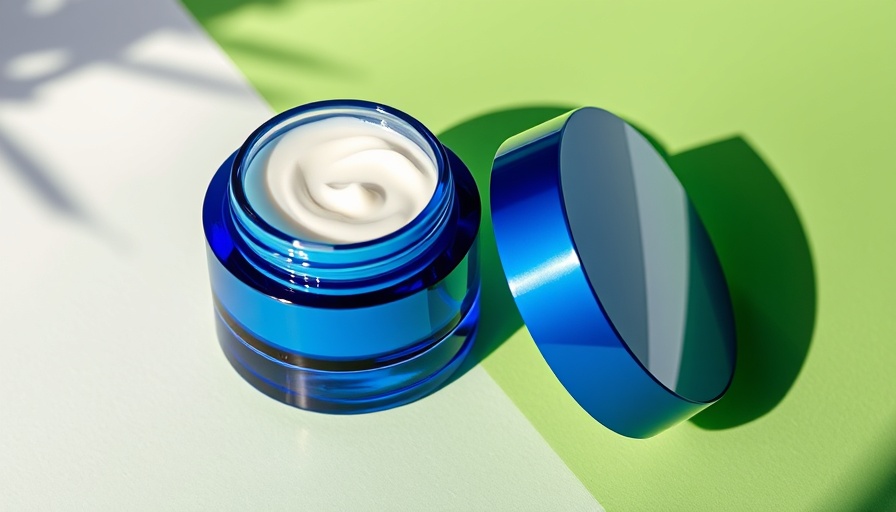
Is a Heavy, Thick Moisturizer the Right Choice for Dry Skin?
For anyone experiencing dry skin, the quest for the best moisturizer can feel overwhelming. Slower oil production, especially past the age of 40, heightens the urgency to discover effective hydration solutions. This often leads to the misconception that heavy, oil-based moisturizers are the answer to nurturing and soothing parched skin. Yet, as we delve into what dry skin truly needs, it becomes clear that this assumption may not be as beneficial as it seems.
The Evolution of Moisturizers: A Historical Perspective
The use of moisturizers has a rich history, stretching back millennia. Ancient civilizations utilized natural ingredients such as animal fats and plant oils to combat dry skin. These ancient remedies laid the groundwork for moisture retention that has evolved into today’s commercial products.
The invention of cold cream and petroleum jelly marked major milestones in moisturizer development. While these formulations do provide temporary relief with their greasy texture, they often fall short of treating the underlying causes of dehydration. As cosmetic science has evolved, the market has seen increasingly specialized moisturizers that combine oils with emulsifiers and water—yet this still doesn’t always address the root of dry skin issues.
Shedding Light on Moisturizer Myths
Understanding the myth behind heavy moisturizers is crucial. Many individuals associate the slickness and shine from oils as a sign that their skin is receiving vital hydration. However, this is often a false sense of relief. The notion that heavy, oil-based products are the best way to hydrate stems from cultural norms passed down through generations, influenced by our mothers and grandmothers.
This misconception can lead to ineffective skincare regimens and frustration. Oils may alleviate the immediate sensation of tightness, but they do not actually improve the moisture content within the skin. Instead, they can create temporary softness without addressing cellular hydration.
What Does Dry Skin Really Need?
The core solution for dry skin lies not in oil alone, but in proper hydration. Both dry and oily skin types need moisture, essentially functioning like fish that thrive in water. This means integrating humectants into one's skincare routine—like hyaluronic acid—to draw moisture into the skin.
For optimal results, incorporate a hydrating toner immediately after cleansing, followed by a humectant-rich serum. This approach not only enhances moisture levels but also prepares the skin for products that follow.
Seeking Modern Solutions in Moisturization
Today’s moisturizers must provide more than just a heavy layer on the skin. Look for products that combine hydrating ingredients like glycerin, aloe vera, and even advanced formulations with peptides and ceramides to repair the skin's barrier.
Innovative moisturizers are moving away from solely being occlusive to becoming more reparative. Best practices now suggest a multi-layered approach that quenches the skin and boosts its natural defenses. Choosing a product that matches your unique skin needs—rather than a one-size-fits-all oil-based cream—can make a significant difference in your skincare results.
Tips for Choosing the Best Moisturizer for Dry Skin
When selecting a moisturizer, here are a few actionable insights to keep in mind:
- Focus on ingredients: Look for moisturizers with glycerin, lactic acid, or shea butter to help attract and retain moisture.
- Layer your products: Use a hydrating serum before applying moisturizer to maximize water retention.
- Test before committing: Always conduct a patch test before trying new products to avoid potential irritation, especially if you have sensitive skin.
Final Thoughts: A Call to Action for Healthy Skin
It’s time to rethink our approach to dry skin moisturization. By moving away from superficial perceptions and focusing on long-term hydration strategies, we can nurture our skin effectively. Take a moment to reevaluate your skincare routine—ask yourself whether it’s truly providing what your body needs. Embrace change and feel empowered to make informed choices that will serve your skin’s health better over time!
For more insights on healthy skincare practices, sign up for our newsletter and receive tips directly designed for you!
 Add Row
Add Row  Add
Add 




Write A Comment